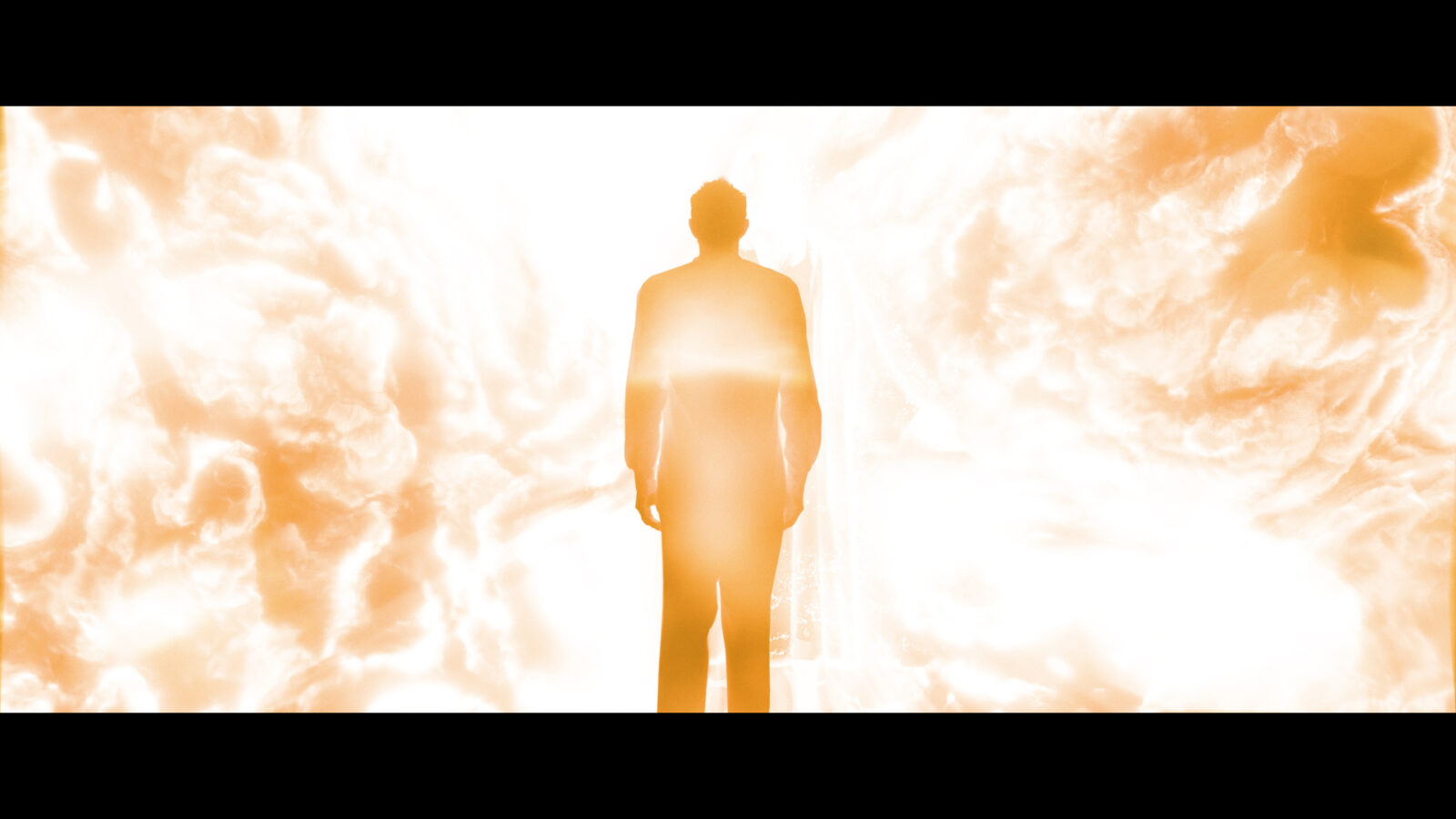


After Death: The Science Behind the Movie

Biologist Jonathan Wells Offers a Cure for Zombie Science
On this ID the Future, Zombie Science author and biologist Jonathan Wells and host Andrew McDiarmid explore the seductive but misleading appeal to consensus science. This is when someone makes a bandwagon appeal to support a scientific hypothesis rather than offering evidence and arguments—as in, “All serious scientists agree that X is the case.” Wells says history makes hash of the consensus-science appeal because the history of scientific progress is all about a consensus view being overthrown by a newer, more accurate view that for a time was a minority view. Wells also draws a distinction between evidence-based empirical science and ideologically driven science. The example he gives for the latter: scientific materialism. Instead of a search for truth about the natural world, science under scientific materialism becomes a search for the best materialistic explanation for this or that phenomenon. Mix scientific materialism and consensus science and you get what Wells has described as “Zombie Science.” Wells and McDiarmid also discuss the problem of science journalism hype. Most scientific discoveries are small, incremental findings of little interest to the general public. The solution for many science journalists: hype the small finding into something earth-shattering. As a remedy, Wells encourages a modest dose of skepticism anytime one is reading a science article in the popular press. What about the claims of Darwinists that the science “is settled,” that evolution “is a fact,” and that bad design in biology proves that hit-or-miss evolution is the maker of life’s diversity, not an intelligent designer? Here Wells encourages more than a modest dose of skepticism, and gives the example of the supposed “backward wiring of the vertebrate eye” as a case in point.

Pt. 3: Stephen Meyer and Skeptic Michael Shermer
On this ID the Future, Return of the God Hypothesis author Stephen Meyer and skeptic Michael Shermer address the question of how a divine immaterial being could act in the material world to design and fashion things such as the first life. Meyer argues that while we don’t know precisely how an immaterial mind would do this or did do this, we have good evidence that minds can and do affect matter, as for instance in the evidence that our minds can affect our brains and, by extension, our bodies. Meyer and Shermer also discuss the idea of front-loaded intelligent design—that is, where God loaded into the moment of the Big Bang everything necessary for the emergence of stars, planets, Earth, and life’s diversity, with no need for subsequent design tinkering. Meyer says he doesn’t have an in-principle objection to that idea, but that the evidence doesn’t support it. He also makes a distinction between two distinct modes by which God can direct things in the natural world, an analytic distinction that Meyer notes is not part of his design arguments in Return of the God Hypothesis but instead is drawn from the theology of nature developed many hundreds of years ago. The two also touch on the idea of extra-terrestrials becoming so technologically advanced that their abilities become indistinguishable from God’s, what Shermer has labeled Shermer’s Last Law. Might such beings be the explanation for certain features in nature that appear to be intelligently designed? Meyer argues that no, there would always remain certain features of the universe that are only adequately explained by reference to a designer with the skillset of the God of theism. This is part three of a four-part IDTF series, and is reposted here by permission of Michael Shermer.

Pt. 2: Stephen Meyer and Skeptic Michael Shermer
Today’s ID the Future continues a lively and cordial conversation between atheist Michael Shermer and Stephen Meyer, author of Return of the God Hypothesis: Three Scientific Discoveries That Reveal the Mind Behind the Universe. In this segment of the four-part series, Shermer and Meyer discuss a fourth argument for theism, the moral law within. Then they discuss the similarities and differences between inferring design for something like the Rosetta Stone versus inferring intelligent design from the information in DNA or the fine tuning of the universe. The interview is reposted here by permission of Michael Shermer.

Stephen Meyer and Skeptic Michael Shermer, Pt. 1
Today’s ID the Future spotlights the first part of a lively and cordial conversation between host and atheist Michael Shermer and Stephen Meyer, author of Return of the God Hypothesis: Three Scientific Discoveries That Reveal the Mind Behind the Universe. In this first of the four-part series, the two touch on everything from Meyer’s three key lines of evidence for theism to a quick flyover of less well-known materialistic origins theories, including the oscillating universe model, panspermia as an explanation for the origin of the first life on earth, and Stephen Hawking’s idea of imaginary time. Meyer lumps many of these ideas under what he terms exotic naturalism and suggests that the atheists who defend these explanations are multiplying exotic and unobserved entities to hold at bay a much simpler and more reasonable explanation for the evidence—namely, intelligent design. But is Meyer simply guilty of confirmation bias in arriving at his conclusion? Meyer turns the question around and suggests that it’s those who are wedded to methodological materialism who appear to be led by a confirmation bias. The interview is reposted here by permission of Michael Shermer.

Author Neil Thomas Discusses Taking Leave of Darwin, Pt. 1
On today’s ID the Future, meet Taking Leave of Darwin author Neil Thomas, not at all the sort of person one might expect to find waging a campaign against modern evolutionary theory. An erudite and settled Darwinist living comfortably in a thoroughly secular English academic culture, Thomas nevertheless came to reject Darwinian materialism and, as he insists, did so on purely rationalist grounds. Listen in to learn about his journey and about his new book from Discovery Institute Press, Taking Leave of Darwin: A Longtime Agnostic Discovers the Case for Design.

3 Questions for Friends Skeptical of Intelligent Design
On today’s ID the Future Tom Gilson — author, senior editor with The Stream, and occasional contributor to Evolution News & Science Today — tackles the question of how best to discuss intelligent design with friends and associates skeptical of ID. There is so much misinformation about the theory of intelligent design that many well-intended people reject not the actual theory but a silly caricature, a straw man. They don’t realize that ID is not an argument from ignorance but an inference to the best explanation based on positive evidence for design and negative evidence against competing materialistic explanations. It involves what is known as abductive reasoning, a standard mode of reasoning in the historical sciences. When in conversation with someone who understands none of this, Gilson suggests using the Socratic method and, in particular, three questions designed to turn down the heat, promote dialogue, and draw the other person into a discovery of the actual theory of intelligent design.

New Book on Thomas Reid’s Common Sense Design Philosophy

The Magician’s Twin: C. S. Lewis and the Case Against Scientism, Pt. 1
On this episode of ID the Future, we recognize the 75th anniversary this month of the publication of C. S. Lewis’s prophetic science fiction novel That Hideous Strength, with the first slightly abridged part of John West’s documentary The Magician’s Twin: C. S. Lewis and the Case Against Scientism. Several scholars were interviewed for the film, including Jay Richards, Angus Menuge, Victor Reppert, John West, and Michael Aeschliman. Scientism is the idea that science is the ultimate path to knowledge and wisdom — the only sure path — and that the spiritual realm is a mirage. Lewis never criticized science, only scientism, the abuse of science that bears an unexpected twinship with magic.